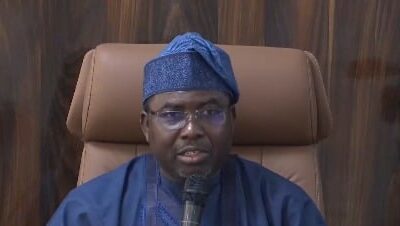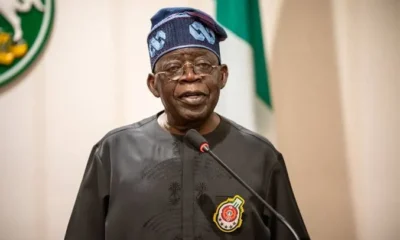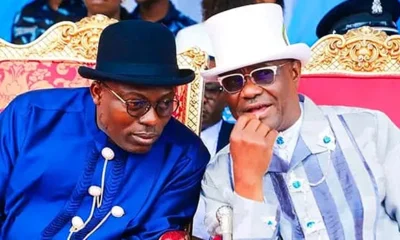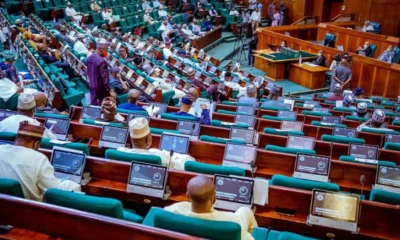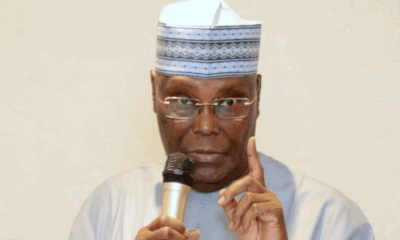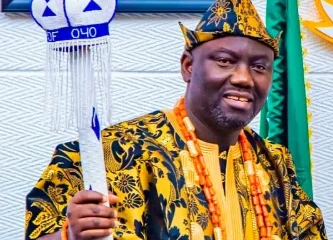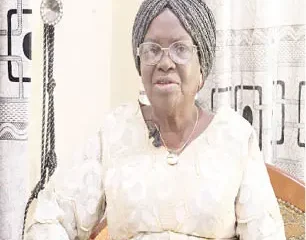News
What APC Can Do With Two-Thirds N/Assembly Majority
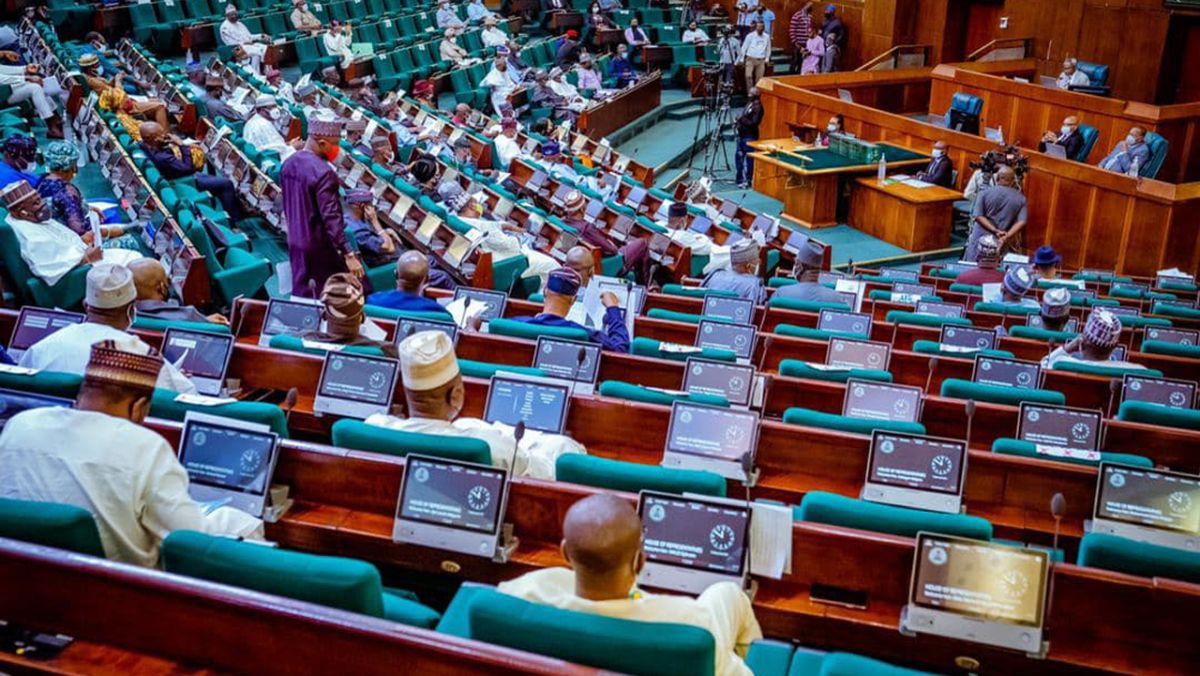
The ruling All Progressives Congress (APC) has secured a two-thirds majority in the House of Representatives following the defection of six more lawmakers on Thursday, just weeks after attaining the same status in the Senate.
Five members of the Peoples Democratic Party (PDP) from Enugu State and one Labour Party (LP) lawmaker from Plateau State announced their defection to the APC during plenary, further boosting the ruling party’s numerical strength in the Green Chamber.
The two-thirds majority threshold in the 360-member House is 240. With the latest defections, the APC now commands 243 seats, while the PDP has dropped to 72. The LP holds 21 seats; the New Nigeria People’s Party (NNPP), 15; All Progressives Grand Alliance (APGA), 5; African Democratic Congress (ADC), 1; Social Democratic Party (SDP), 2; and Young Progressives Party (YPP), 1.
The Senate had earlier attained a similar supermajority following waves of defections since midyear.
At the inauguration of the 10th National Assembly in June 2023, the APC had 175 seats in the House, while the combined opposition parties collectively held 182 — giving them a slim edge at the time. However, a steady stream of defections over the past year has reversed that balance, consolidating the APC’s dominance in both chambers as lawmakers realign ahead of the 2027 general elections.
New defectors
The five Enugu lawmakers who defected are Hon. Nnolim John Nnaji (Nkanu East/Nkanu West), Rep. Anayo Onwuegbu (Aninri/Awgu/Oji River), Rep. Oke Martins (Igbo Etiti/Uzo Uwani), Rep. Obetta Mark Chidiebere (Nsukka/Igboeze South), and Hon. Dennis Nnamdi Agbo (Igbo-Eze North/Udenu).
They were joined by Hon. Daniel Asama of Jos North/Bassa Federal Constituency, Plateau State, who announced his defection from the LP to the APC.
Speaking on behalf of the Enugu caucus, Hon. Nnolim Nnaji said the decision was guided by a collective resolve to align with Governor Peter Ndubuisi Mbah, whom he described as “a visionary leader committed to transforming the state and connecting it to the national development agenda.”
“Today, we stand before you filled with joy, conviction and purpose,” Nnaji said. “With your blessing and in line with our collective decision to stand firmly with our visionary governor, we formally announce our defection to the All Progressives Congress.”
He described the move as “a bold step into the future,” intended to reposition Enugu for greater participation in national politics.
“For too long, our dear Enugu State has remained in opposition, watching from the sidelines as others shaped the destiny of our nation. That era is over,” he said, adding that joining the APC would help attract more federal presence, infrastructure projects and youth empowerment to their constituencies.
Nnaji commended Governor Mbah’s leadership and called for unity across political divides, saying politics should be a tool for service rather than division.
Implications of APC’s two-thirds majority
The APC’s two-third majority in both chambers has major implications for lawmaking, constitutional amendment and power dynamics within the National Assembly.
For constitutional amendments, under Section 9 (2) and (3) of the 1999 Constitution (as amended), any bill seeking to alter the Constitution must be supported by at least two-thirds of all members of each chamber and ratified by two-thirds of the 36 state assemblies (24 states).
With its current numbers, the APC can easily push constitutional amendment bills through the National Assembly, though state-level approval remains a necessary hurdle.
Also, as it relates to impeachment of the president or vice president, Sections 143 (4) and (9) of the Constitution require a two-thirds majority in both chambers to remove the President or Vice President for gross misconduct. The APC’s current dominance effectively shields the presidency from any impeachment attempt, as opposition lawmakers lack the numbers to initiate or sustain such a move.
For removal of presiding officers, Sections 50 (2)(c) and 92 (2)(c) of the Constitution provide that the Senate President, Speaker or their deputies can only be removed by a two-thirds majority of their respective chambers. This means the current presiding officers, backed by the APC’s overwhelming majority, are largely secure from any impeachment effort.
In the case of declaration or extension of state of emergency, Section 305 (6) of the Constitution requires a two-thirds majority of each chamber for the President to declare or extend a state of emergency. With its supermajority, the APC-controlled legislature can readily approve such a request, granting the executive greater leverage in national security or political crises.
It will be recalled that during the past debates on the declaration of a state of emergency in Rivers State, the Senate initially stalled due to an inability to muster a two-thirds majority, while the House of Representatives only approved it after a careful procedural compromise.
Now, with the APC holding decisive control in both chambers, the ruling party is positioned to drive key legislative decisions with limited resistance from the opposition.
Analyst warns of consequences for democracy
Commenting earlier on the growing dominance of the ruling APC and its increasing control of the National Assembly ahead of the 2027 elections, a political scientist, Professor Gbade Ojo, warned of serious consequences for Nigeria’s democratic future.
“What we are witnessing is the continuous expansion of the ruling APC. While that may appear to signify political strength on the surface, the implications for democracy are deeply concerning,” he said.
“When a ruling party in a democracy controls the parliament to the extent of holding a two-thirds majority, it becomes a form of subtle dictatorship. There are no effective checks and balances.”
He cautioned that in such a scenario, the National Assembly risks losing its independence and turning into a rubber stamp for the executive.
“The legislature becomes a ‘Yes Ma, Yes Sir’ institution. Lawmakers will compromise. The executive can push through borrowing plans, even after removing fuel subsidies, as is currently the case, and the legislature will not act as a check. That is a dangerous trend for our fragile democracy,” he said.
“Our prayer is that this democracy does not relapse into dictatorship. As the saying goes: power corrupts, and absolute power corrupts absolutely.”
Ojo also blamed the growing imbalance on the weakness of opposition parties, describing it as a “self-inflicted injury.”
“The opposition has failed to put its house in order. The absence of internal democracy and lack of discipline are their biggest undoing,” he said.
Ojo lamented what he called the ideological emptiness of Nigerian politics.
“In an ideal democracy, no two parties should be ideologically identical. But in Nigeria, there is complete ideological fluidity. Everyone is simply fighting for survival, not based on principles or values.”
He warned that unless the opposition repositions itself by restoring internal discipline and forging a clear ideological identity, Nigeria’s democracy would remain dangerously one-sided.(Daily trust)
-

 News12 hours ago
News12 hours agoINEC faces backlash over 2027 election dates coinciding with Ramadan
-

 News11 hours ago
News11 hours agoConfusion hits trial of suspected coup plotters
-

 Politics11 hours ago
Politics11 hours ago‘Wike discovered me’ – Fubara dedicates award to FCT minister
-

 News7 hours ago
News7 hours agoReps To Hold Emergency Session Over INEC’s 2027 Election Timetable
-

 Politics11 hours ago
Politics11 hours agoCan A Commission Struggling With Proper Timing Conduct Credible Elections? – Atiku
-

 News11 hours ago
News11 hours agoAlaafin mum as Makinde crowns 14 Oyo chiefs
-

 Metro11 hours ago
Metro11 hours agoMan kills brother over accusation of blocking success
-

 News11 hours ago
News11 hours agoThe Future Of Medicine In Nigeria Is Private – Dr Maryam Dija Ogebe



